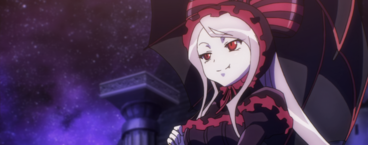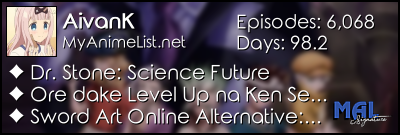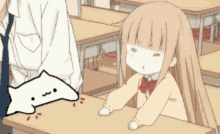Danpmss said:Tasel said:As soon as Bosse showed up, I knew he was gonna help them.
Once you realize that all the characters are actually good guys pretending to be villains, everything makes sense.
I don't think there are "good guys and bad guys" as in "black and white morality" in this series, though we do have 3 "good guys" for sure. So far in the anime, they are all more like gray with the exception perhaps of Bojji himself, Miranjo's mother and Hokuro (which are quite the "goodest bois" in this series). Their biggest flaw is their gullibility, which despite being harmful to them, their good nature usually making it worth it in the long run, as they influence other characters to be better, even after their deaths/apparent deaths (the latter in Bojji's case, the former in Miranjo's mom's, and applicable through Bojji's in Hokuro's case).
For some examples:
- His brother sent his teacher to kill him (who actually attempted murdering him despite his regrets for doing so), though he is just trying to live up to his father's name as a good king, and is repeatedly shown to be much less evil-hearted than he appeared to be at first.
- The King (will avoid spoilers from the manga, so just from the anime) is a power hungry bastard that learned how to have a heart through genuine people that shown him the light, and dedicated himself to the surviving girl of the people after genociding the ones who defigured and mutilated her (which in turn, were a population that grew to be more and more hateful and bad-natured after being betrayed and getting screwed so many times in the past).
- Miranjo was a sweetheart like her mom, horridly had a taste of humanity at their most evil, and never was the same after that (and the rest of her story is kind of spoiler for the next two episodes).
- Satun (a freaking GOD), despite being someone who always developed humanity on his rule towards the better with technology, got corrupted by his obssession and fear towards death, which made him go insane and murderous until he was killed by his children, who themselves because of war, were also responsible for several atrocities they also regret.
The list goes on for every single character other than those 3 (and the beasts/animals, I guess?), even Kage (who in fact, is the very first character to be shown in such a light after taking advantage of Bojji gullibility and emotional dependence of a friend to talk to, for a while).
They are all multi-facet with their own issues, motivations and ideals.
The point being that in this world, no one is inherently evil in nature, but they aren't incorruptable, much like any human isn't. Their desires for the most part drive them towards sin, which is in this case, the think they all inherit. There's a lot of Shinto-Buddhism humanity in here, much like most works in Japan.
This episode puts it like "dealing with the sin, you may help the sinners against it" in a way.
For a minor example, sort of how killing thieves is usually considered not the best way to combat theft. Theft will continue until people have no reason to resort to it, which also applies to good education on why it shouldn't be a thing, rather than just "solving monetary issues that led them to that end". And if the person is propense towards evil more than others even then, it's jail time, which will be a much more excruciating long time punishment to them, which will probably make them think twice before wasting even more of their lives behind the bars.
All in all, not my personal belief for how to solve everything universally (not like we have any example of an effective Utopia anyway, humans are naturally flawed, and so will their government always be), but it isn't really trying to, it's just another religious belief towards good, which on itself at least is well-intentioned for humanity's progress.
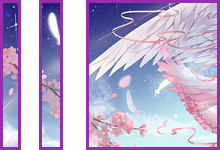

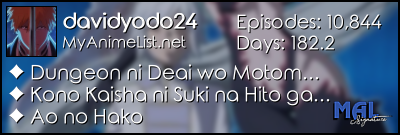


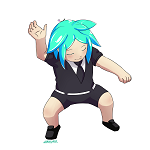 cunnysseur
cunnysseur



